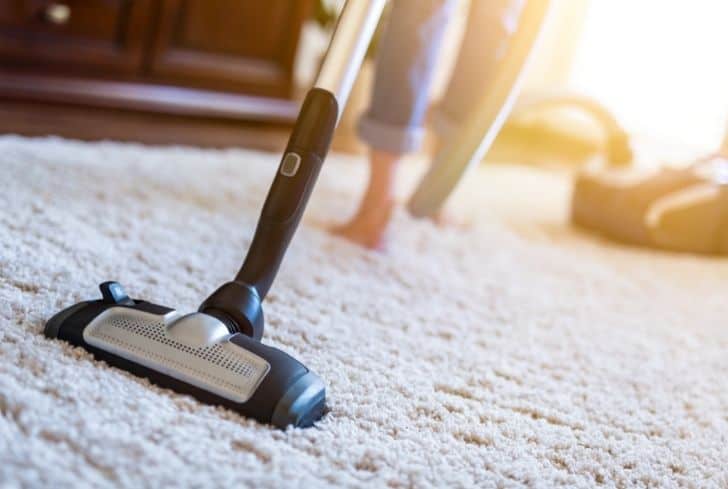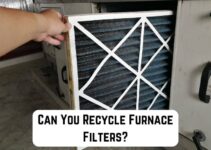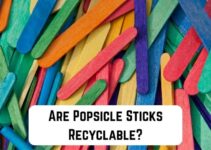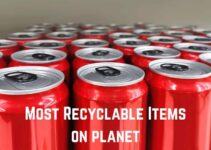Cleaning is an activity we cannot avoid doing. Nobody wants to live in a home full of dirt, webs, dust, and other stuff that makes a house look messy and dirty. Everything says something about your personality, and you do not want visitors to have a bad impression of you.
So, we cannot do without cleaning our homes, some people clean theirs’ regularly and others once in a while. Regardless of the category, you fall into; you still clean your home. Many people use a vacuum cleaner to aid the cleaning of their homes.
Most people are not conscious of how they dispose of the vacuum dust; they do not know if it has any effect on the environment, or if it can be compostable, or even how to dispose of it properly. This behavior is the major reason our environment is becoming uninhabitable.
We all need to become environmentally conscious and properly dispose of any unwanted or old items. You are reading this blog post because you want to know if you can compost vacuum dust. Be rest assured, we will provide answers to all your questions.
Can You Put Vacuum Cleaner Dust in the Compost?
If you are an ardent lover of gardening, you would understand how important compost is to the soil. During the cleaning of your home, you wiped the windows clean, dusted the tables, and vacuumed the carpet.
At the end of the cleaning, the vacuum cleaner is full of dust, and you think, can you put the dust in the vacuum cleaner in the compost? Is vacuum cleaner dust good for the soil?
The answer to your question is No; you must not put vacuum cleaner dust in the compost. At the same time, this might sound strange because the dust is pretty much dead skin and hair, which is organic and compostable. Let us see why you must not put vacuum cleaner dust in the compost.
When cleaning, eighty percent of the materials the vacuum cleaner will pick up from the floor are organic and good for composting. However, twenty percent of dirt is synthetic fibers. If you have carpets in your homes, the percentage of synthetic fiber could be more.
The organic materials the vacuum cleaner picks up are compostable and can be broken down easily by microorganisms and bacteria. But the synthetic fibers that are attached to it do not break down. Research proves that it takes about two hundred years for synthetic fibers to break down in the compost.
When these synthetic fibers are disposed into the compost site, they take up space, and they pose a threat to the microorganisms in the soil that break down organic materials. So, when you put vacuum cleaner dust in the compost, it does not compost because of the synthetic materials that are with it.
Nevertheless, there is a way to make vacuum cleaner dust compostable when you put it in the compost. It is advised that you do not drop it and leave it in a big lump. Rather mix the dust in the compost bin with a stick, water it to ensure the dust is well mixed with the other compostable materials in the bin. If you do this every time you vacuum cleaner dust in the compost, a larger percentage of the dust will be broken down.
However, many recycling companies advise that you should only put vacuum cleaner dust in the compost if you are sure it is made up of only organic matter. If you are not sure, do not put it in the compost bin at all.
Can You Compost Vacuum Cleaner Lint?
You know that most of the waste products from your home are good for compost, but you will most likely dispose of them in the recycle bin. Composting waste products has a lot of benefits. It enriches the soil, suppresses plant pests and diseases, and helps retain moisture.
Composting also helps reduce our carbon footprint; it is one of the ways we can save our environment. Encouraging composting reduces the need for chemical fertilizers. And this is very beneficial to the environment.
So, the lint picked up by your vacuum cleaner during cleaning, can it be composted? The answer is yes; you can compost vacuum cleaner lint. However, there is a condition that must be met before you can compost vacuum cleaner lint. The lint must be made up of only organic materials.
During cleaning, the vacuum cleaner will pick up dust, human hair, pet fur, skin flakes, and other types of dirt. These can all be composted. So, if the vacuum cleaner lint is a combination of this organic waste, you can compost it easily. When composting this lint, avoid dumping it in a lump; ensure you spread it around so it can be broken down faster.
However, if during the cleaning process, you used some chemicals, like carpet fresheners, you cannot compost the lint from the vacuum cleaner. Chemicals are not compostable, neither are they organic or biodegradable. If you try to compost vacuum cleaner lint that has been combined with chemicals, you are causing lots of damage to the environment.
Rather than breaking down, these chemicals concentrate; they end up harming the microorganisms in the soil that should break them down. Rather than act as compost to the soil, chemicals make the soil unproductive, making it difficult to grow crops on that piece of land. And if the chemicals find a way to get to a body of water, it pollutes the water and harms all aquatic organisms.
If you just got some new carpets and the vacuum cleaner picks up lint, that lint is not compostable. New carpets have high synthetic fiber content, and the carpets will shed loose fibers during cleaning. It would be best if you did not try to compost lint that has been mixed with synthetic fibers.
However, the fibers from wool-heavy carpets are compostable. Wool is an organic product; it is gotten from sheep making it compostable. So, before you try to compost vacuum cleaner lint, ensure the lint is completely organic. Otherwise, you might end up polluting and contaminating the environment.
Can You Flush Vacuum Dust Down The Toilet?
Many people are guilty of the improper disposal of waste and unwanted items. This doesn’t seem right; some people believe it is better to flush the waste down the toilet because it is fast and requires zero effort. They are not bothered about the consequences. If you have been doing this too, this is the best time to stop it.
It would help if you did not flush vacuum dust down the toilet, regardless of the size. When you flush vacuum dust down the toilet, you do not see it does not mean it is gone. It is still lurking in the pipes and can cause a major sewer blockage if flushed consistently.
Vacuum dust gets logged in the toilet bowl when it is flushed down the toilet. Please do not assume that it is dust, so there is no harm in flushing it down the toilet. The toilet traps were designed to be wide enough for only certain waste products, and vacuum dust is not one of them.
Flushing vacuum dust down the toilet bowl will cause your toilet to be blocked, and even the pipes that lead to the sewers could be blocked. It might take a long time before you notice that the sewer pipes are blocked, and it is impossible to flush anything down the toilet.
You would need to get a plumber to clear out the blockage and repair any damage to the pipes. And you will end up spending a lot of money to fix a problem you could have easily avoided. So, before you flush anything down the toilet, think about the possible consequences.
What Types of Waste Should Not Be Composted?
While we must do everything possible to keep our environment safe, recycling and decomposing waste materials effectively, we must also ensure we are recycling and decomposing only recyclable and compostable waste products.
Composting materials that are not supposed to be composted will result in some unpleasant results. So, let us look at a few wastes that you must not compost.
1. Meat Products
Meat products are one of the food wastes you must not try to compost. Few high-rated composting companies can handle the composting of proteins. Meat products like meat, bones, and fish cannot be composted.
They increase the temperature of the soil, causing it to stink. And when the soil stinks, unwanted pests like grubs, rodents, and raccoons are attracted to the compost.
2. Tea Bags and Coffee Pods
Coffee pods and tea bags are made of preservative nylon fibers or food-grade PET (plastic). These are not compostable, and they end up contaminating the compost. It would help if you noted that we said tea bags and coffee pods, not tea leaves and coffee grounds. Tea leaves and coffee grounds are compostable, but you must remove them from the bags and pods before composting.
3. Treated Lumber
You might assume that every timber is compostable because it is organic; the reverse is the case. Any lumber to be used for construction is treated with water repellant to make it moisture resistant and repel timber-eating animals. The treatments contain toxic chemicals that do not make them compostable. This includes the sawdust from treated lumber.
4. Fertilizers
Fertilizers should not be composted, especially synthetic fertilizers. Although they make the soil fertile, they also cause some damage during the process of composting. Synthetic fertilizers kill microorganisms that help decomposition, alter the nutrient and pH levels of the soils, and they leach into the soil.
5. Plastic Cutlery
Plastics are not compostable; they contain synthetic fibers that are dangerous to microorganisms. So, when you try to compost them, they only fill up space in the compost bin, posing a threat to the environment.
Plastic cutleries break down into smaller pieces, and they remain like that for a very long time, causing severe damage to the environment.
6. Used Hygiene Products
Hygiene products such as pads, tampons, wipes, and even cotton wool should not be composted after being used. Anything that has come in contact with blood contains pathogens, and when you try to compost them, they transfer the pathogens to the compost. Most of the hygiene products become contaminated after use. The contaminants contain chemicals that make them difficult to compost.
7. Infected Plants
Do not assume that plants that die from insect infestation, fungal, or disease infections can be composted, and they would fertilize the soil. When you try to compost infected dead plants, you might end up spreading the fungi and insects into the compost.
8. Feces
The feces of vegetarian animals, like goats, cows, horses, chickens, and rabbits, are very beneficial to the soil and plants. However, the feces of predatory animals, like cats and dogs, must not be dumped in the compost heap. Human feces should also be kept out of the compost heap. They all contain parasites and diseases that can be spread around.
Conclusion
To save our environment, we must be very cautious with the activities we engage in. Although recycling and composting are effective ways of protecting our environment, we must only recycle and compost recyclable and compostable items. Otherwise, we might end up causing more harm than good to the environment.






